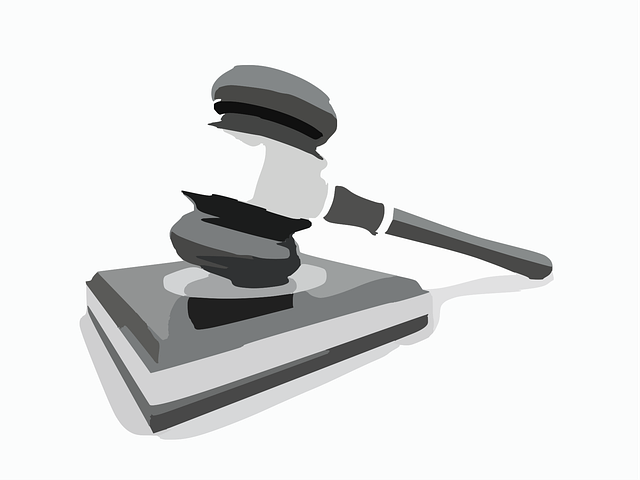Businesses need to navigate complex regulatory environments and manage partner disputes for success. Implementing robust internal processes, clear communication, and dispute resolution mechanisms builds trust and prevents legal entanglements. Thorough due diligence before partnerships, strategic dispute management, and engagement of white-collar defense specialists mitigate risks. Open communication post-resolutions strengthens relationships and prevents future conflicts, fostering integrity and mutual respect. Refer to our guide How to Resolve Business Partner Disputes for detailed strategies.
In the dynamic landscape of business, regulatory compliance is a cornerstone of sustainable growth. Understanding and adhering to evolving legal requirements can be complex, especially in partnerships. This article guides you through the intricate web of regulatory compliance issues, offering insights on identifying potential disputes with business partners. We explore effective resolution strategies and highlight steps for fostering long-term success after conflicts are addressed. Discover how to navigate these challenges and ensure your partnership thrives in today’s competitive market by learning How to Resolve Business Partner Disputes.
- Understanding Regulatory Compliance Requirements
- Identifying Potential Business Partner Disputes
- Strategies for Effective Dispute Resolution
- Ensuring Long-Term Partnership Success After Resolving Disputes
Understanding Regulatory Compliance Requirements

Understanding Regulatory Compliance Requirements is a critical step for any business aiming to navigate the complex legal landscape successfully. It involves staying informed about industry-specific rules and guidelines set by governing bodies, ensuring adherence to avoid potential penalties and legal repercussions. One of the key aspects is recognizing that regulatory compliance isn’t just about avoiding punishment; it fosters trust with customers, partners, and stakeholders, ultimately enhancing a company’s reputation.
To effectively manage these requirements, businesses must develop robust internal processes. This includes establishing clear lines of communication, conducting regular training sessions for employees, and creating systems to monitor changes in regulations. Furthermore, fostering open dialogue with business partners is essential, especially when resolving disputes that may arise. Effective conflict resolution strategies, such as mediation or arbitration, can help navigate these challenges without drawing unnecessary legal attention. For high-stakes cases, involving complex transactions or potential criminal liability (general criminal defense), having a comprehensive understanding of regulatory compliance can be a game-changer, potentially avoiding indictment and mitigating risks.
Identifying Potential Business Partner Disputes

Identifying potential disputes with business partners is a crucial step in maintaining a harmonious and successful collaboration. Before signing any agreements or entering into partnerships, it’s essential to conduct thorough due diligence. This includes understanding the respective business backgrounds, reputations, and existing legal obligations of all involved parties. A comprehensive review of contracts, prior dealings, and any public records can reveal potential red flags or areas of contention.
To resolve business partner disputes effectively, a strategic approach is key. Engaging in open communication channels allows for early detection and resolution of issues. Establishing clear dispute resolution mechanisms within the partnership agreement can streamline the process. Additionally, seeking professional advice from legal experts specializing in white-collar defense strategies can prove invaluable. Their expertise might be required to navigate complex matters, especially when aiming for winning challenging defense verdicts. By proactively addressing and managing disputes, businesses can foster a stronger, more resilient partnership built on mutual trust and understanding.
Strategies for Effective Dispute Resolution

Effective dispute resolution is a cornerstone for maintaining robust relationships with business partners, especially in navigating regulatory compliance issues. When disagreements arise, addressing them promptly and efficiently can prevent escalation and safeguard the interests of all parties involved. A strategic approach to dispute settlement involves clear communication channels where all stakeholders express their concerns openly and honestly. Mediation, as an alternative to litigation, offers a cost-effective and time-saving solution for resolving conflicts amicably.
For complex cases, particularly high-stakes matters involving regulatory compliance, engaging legal experts with experience in winning challenging defense verdicts is pivotal. These professionals can navigate the intricate legal landscape, leveraging their knowledge of both business and the philanthropic and political communities to craft innovative strategies that address the core issues. Through a combination of negotiation, strategic litigation, and creative problem-solving, parties can achieve mutually beneficial outcomes, fostering stronger partnerships moving forward.
Ensuring Long-Term Partnership Success After Resolving Disputes

After successfully navigating regulatory compliance issues and resolving disputes with business partners, fostering a lasting partnership becomes paramount for achieving extraordinary results. The process of healing and rebuilding trust is essential in ensuring long-term success. A key step is open and honest communication, allowing both parties to express concerns and work collaboratively towards mutual understanding.
By addressing the root causes of the dispute, companies can implement strategies that prevent future conflicts, such as refining internal processes, enhancing transparency, and establishing clear guidelines for decision-making. This not only helps in achieving a complete dismissal of all charges but also strengthens the partnership by fostering a culture of integrity and mutual respect, which is vital in mitigating risks associated with white-collar and economic crimes.
Regulatory compliance is not just a box to tick, but a dynamic process that requires continuous learning and adaptation. By understanding regulatory requirements, proactively identifying potential disputes, employing effective resolution strategies, and fostering strong partnerships post-resolution, businesses can navigate the complexities of regulatory compliance successfully. Remember, How to Resolve Business Partner Disputes lies in open communication, clear expectations, and a commitment to mutual success, ensuring long-term partnership prosperity.






